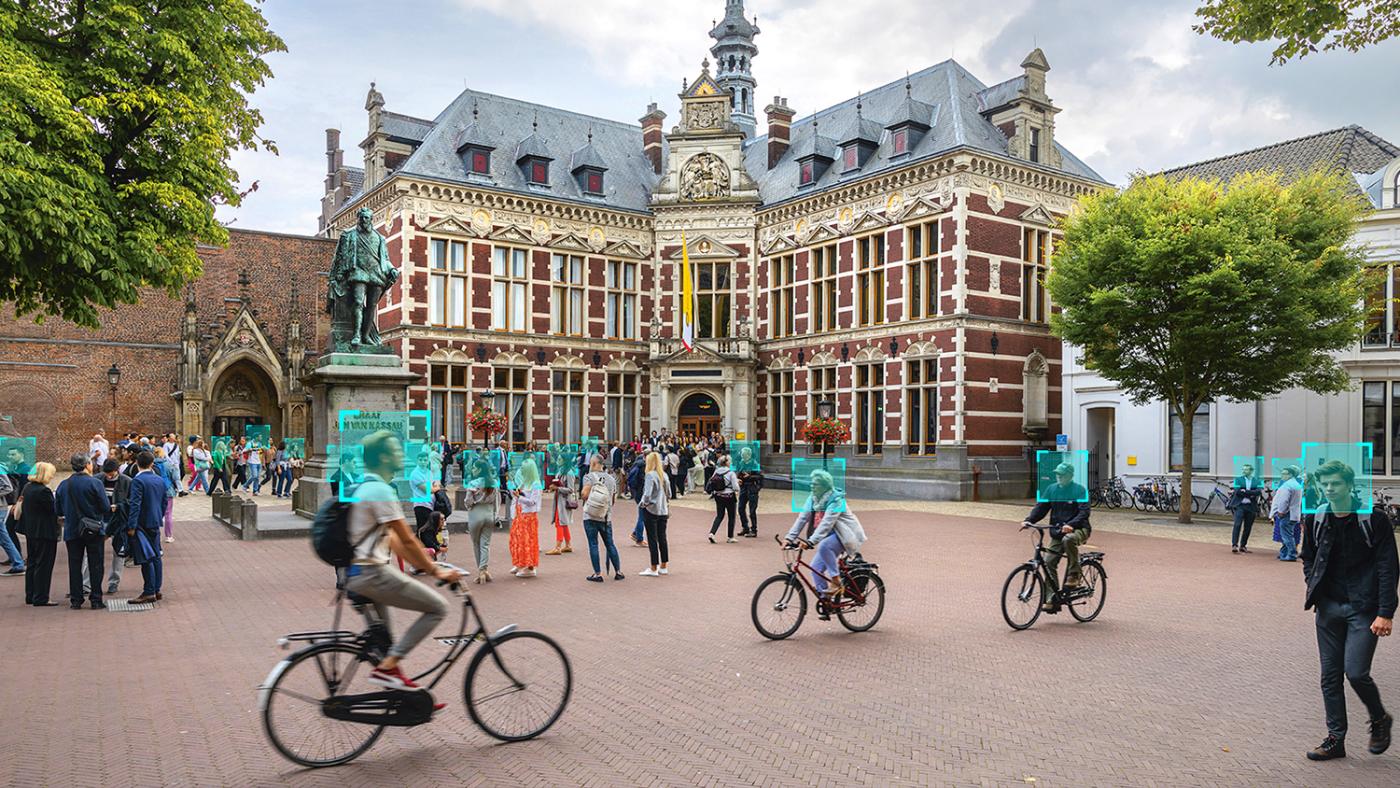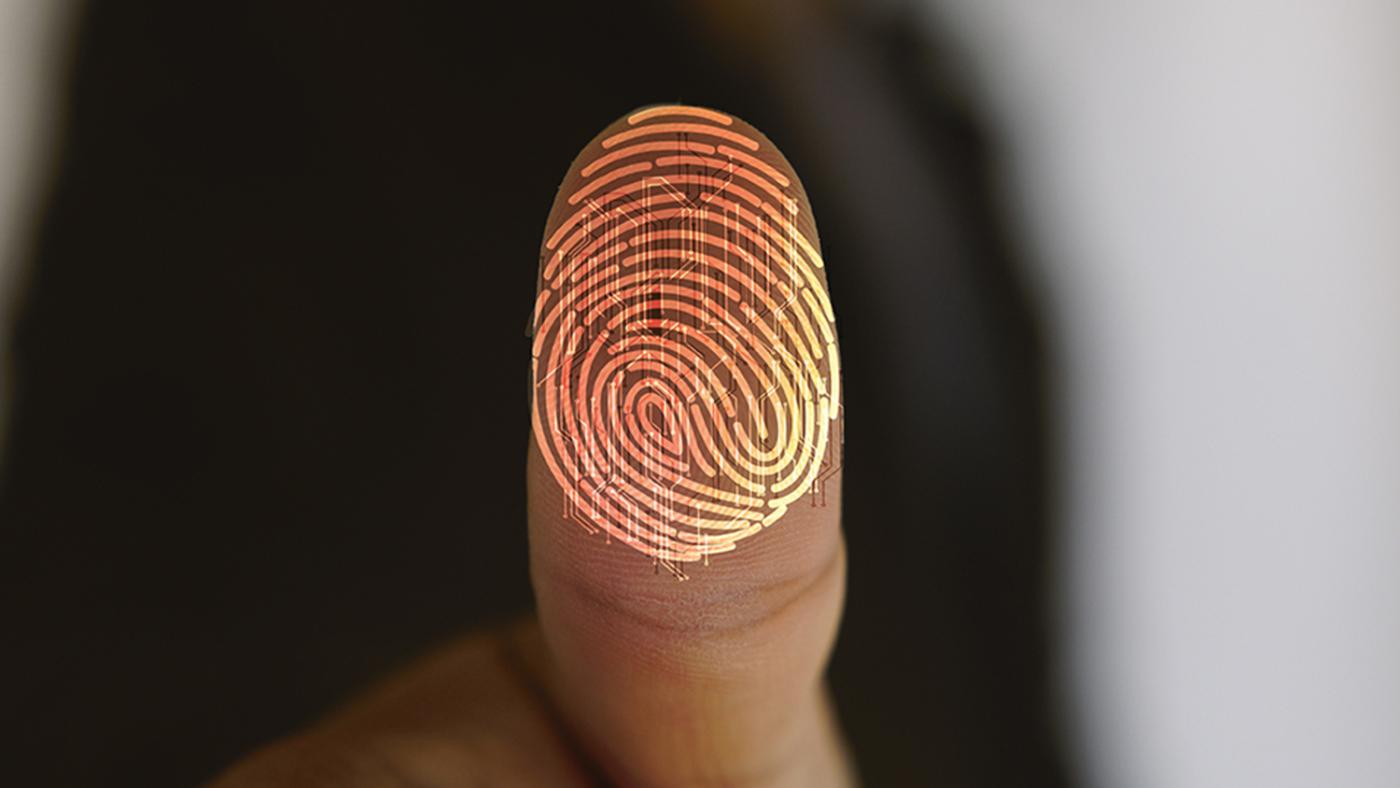Governance expert Albert Meijer looks at Europe and governmental organisations with hope
AI is dangerous. How do we save democracy?

A place with freely accessible information, where no one can be silenced. Does it get any better than that? The advent of the Internet promised a golden age of democratic values, an imminent “digital Athens”. But that naïve optimism has since been dampened significantly. Albert Meijer had his wake-up call in 2006, when American campaign staff in Massachusetts explained to him how voters for the governor elections were approached based on data about their car brands, the newspapers they read, and their postal codes. “There was no sign of Russian troll factories spewing fake news at the time, but that meeting got me thinking.”
Polarisation as a business model
Meijer says microtargeting on social media and the more recent phenomenon of deepfakes have led to a “more eroded public sphere”. Authoritarian states strengthen their positions of power and tech corporations focus on online polarisation as part of their business model. That means it’s no longer obvious what the facts are and which news sources can be trusted. Meijer: “We’ll have to reclaim that public sphere”. He’s pinning his hopes on the EU’s goal of achieving a digital society that’s based on values like free access to health care and education, independent media, and protection of privacy. For that reason, he strongly supports European plans to better protect citizens’ data through its own cloud infrastructure.
He also says that a stricter regulatory framework is needed. In the new European AI act, which sets strict demands to systems used in Europe, he sees a step in the direction of a solution. “Companies like Facebook, X, Google, and TikTok will have to take responsibility for their methods.” But he knows it’s a difficult matter. This concerns massive amounts of data and technology is developing fast. Moreover, there’s often a lack of capacity and expertise, which means that monitoring and enforcing isn’t easy. “It’s clear that we need additional steps, both on a European level and on a national one.”
The value of meeting each other
Although everyone is now seeing that it won’t be easy to strengthen the public debate online, some tech optimists still hope to see AI having a positive effect on the democratic decision-making process. Meijer says that, in the US, scientists are using AI and virtual games to study citizens’ preferences when dividing scarce goods. This kind of information could possibly lead to a more transparent decision-making process than elections or political debates.
The UU professor is incredibly sceptical. In his view, such a technocratic approach makes citizens passive, not to mention it can easily lead to unwanted results. “People’s preferences aren’t set in stone. They can change when circumstances change or when they hear other arguments. Besides, we shouldn’t lose sight of the value of meeting each other and talking to each other in real life.”

Photo: Shutterstock
Things go wrong sometimes
In his research, Meijer mainly looks at whether or not democratic decisions are properly made. He analyses, for instance, how the National Police uses AI and how this affects individual citizens. He no longer has to explain to anyone that things go wrong sometimes: the Dutch child benefits scandal is but one example of that. Meijer says problems can arise at multiple levels. For starters, technicians sometimes use algorithms without considering political sensitivities – such as when unrest arose when the police used data about ethnical background as a value in a system that was meant to predict whether someone could be dangerous. “Politicians and technicians should try to understand each other’s work better,” he concludes.
Moreover, governmental institutions’ governing processes aren’t always up to scratch. They do not pay enough attention to informing and involving citizens, or to citizens’ privacy, for example. Meijer and his colleagues developed a Good Digital Public Governance Code (Codio, see frame, Ed.) which is meant to help smooth out the introduction of technological innovations. “If a municipality wants to use smart cameras, civilians should know what that means to them.”
But, according to him, the most important thing is that governmental institutions should strictly check whether the use of algorithms is leading to the intended result, ensuring that no unintended side effects play up. “After all, these systems are self-learning, they can’t simply create new unforeseen patterns.”
Aware of risks
If the three prerequisites listed above are met, Meijer is not opposed to AI. He’s noticed that executive branches of the government, like the police, are very much aware of risks of discrimination or privacy violations. Many municipalities now have advisory councils to assist them as well. Meijer is the president of the advisory council of the municipality of Rotterdam himself.
He hears more and more people complain that governments mostly use AI to rule out risk factors or track down citizens with criminal intentions. It is used much less to persuade citizens to “behave well”, so to say. “You can wonder if there aren’t more possibilities to use AI to help vulnerable groups. Many citizens don’t use the subsidy regulations they are entitled to. We also know that not paying one’s health insurance is often a first sign of debt issues. AI could provide more insight into that type of situation and the people dealing with it.”
He considers this to be one of the questions for the near future: “Can AI also contribute to more social justice?”
Good Digital Public Governance Code
On behalf of the Interior Ministry, the Professor of Public Innovation Albert Meijer and his UU colleague Erna Ruijer have developed the Good Digital Public Governance Code (Codio). Through this code (pdf in Dutch, ed.), they have defined thirty important public values that can be influenced when a governmental institution uses a digital innovation such as AI. Examples of these values include non-discrimination, privacy, and monitoring.
Meijer says the code can help lower-level governmental institutions, the police, and executive institutions dealing with concrete proposals decide which values might be at risk and what needs to be done to protect them. The code can also be a tool for citizens as it elucidates what they can expect of a government that uses AI.
This interview was published earlier this month by Illuster, UU’s alumni magazine

Professor Albert Meijer. Photo: Ivar Pel
Through his work, Professor Albert Meijer aims to show that the government is constantly faced with “new questions” as a result of digitisation. He also affirms that we need “new answers” if we want to maintain the democratic constitutional state. As a scientist, he studies this in several ways.
* As part of the NWO programme Algopol, Meijer, his colleagues and PhD candidates study how trust in the police is affected by the use of AI for various tasks such as emergency assistance, tracing suspects, and prevention. He’s also part of the large, inter-university and interdisciplinary Gravitation programme Algosoc, which investigates how public values can be protected and improved when AI is used by judicial entities, the media or in health care.
- Meijer strives to apply methodological innovations to his research. He mainly studies the possibilities of transdisciplinary research. That means research that attempts to collaborate with organisations, interest groups, and citizens. Along with other scientists, he also publishes articles about new methods in international scientific journals.
“It’s very hard to achieve societal impact with classic research methods,” he’s experienced. “I try to develop methods that are more effective, such as living labs with partners from the field. The question is always how you can end up with robust knowledge that can be used in practice. That remains unerringly difficult each time, if only because, as a researcher, you only get funding for a few years’ worth of research, whereas what you really want is to build long-term, sustainable connections and collaborations.”
- To use his insights to contribute the way societal questions are handled, Meijer also does paid advisory work on behalf of the Faculty of Governance. Designing the previously-mentioned Codio for the Interior Ministry is an example of this. The municipality of The Hague used the code to signal that the introduction of camera monitoring in Scheveningen could lead to privacy violations, for instance.
- As an expert, he also seeks out the relationship with practice through personal involvement – as the president of the Rotterdam advisory council, for instance. The municipality of Rotterdam had previously been confronted with a critical report from the Court of Auditors. “That work offers me valuable insights into how organisations struggle with the issue, which in turn helps me with my research as well as with the education I provide to students and professionals.”
- Lastly, Meijer is a frequent presence in public debate. For example, he gave a lecture for Studium Generale (video in Dutch, ed.) about the consequences AI can have on democracy, which he then turned into an article for the Social Issues website (in Dutch, ed.). “It’s important to me that people understand that these difficult technological issues are about things that matter to them. I hope they realise that a part of their future will be decided by how we think about technology and how we guide these developments.”